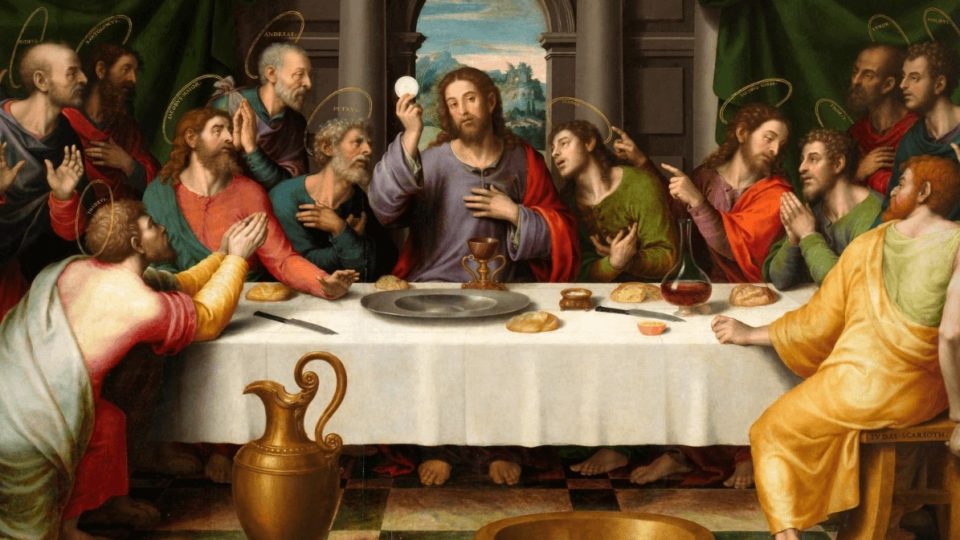The mission of the Twelve
Mk 6:7-13
COMMENTARY TO THE GOSPEL OF ST. MARK (WITH PERMISSION).
- 8-9 Jesus requires them to be free of any form of attachment if they are to preach the Gospel. A disciple, who has the mission of bringing the Kingdom of God to souls through preaching, should not rely on human resources but on God’s Providence. Whatever he does need in order to live with dignity as a herald of the Gospel, he must obtain from those who benefit from his preaching, for the labourer deserves his maintenance (cf. Mt 10:10).
- “The preacher should so trust in God that he is convinced that he will have everything he needs to support life, even if he cannot himself obtain it; for he should not neglect eternal things through worrying about temporal things” (St Bede, In Marci Evangelium expositio, in loc.). “By these instructions the Lord did not mean that the evangelists should not seek in any other way than by depending on what was offered them by those to whom they preached the Gospel; otherwise this very Apostle [St Paul] would have acted contrary to this precept when he earned his living by the labours of his own hands” (St Augustine, De consensu Evangelistarum, II, 30).
- v. 13 St Mark is the only evangelist who speaks of anointing the sick with oil. Oil was often used for treating wounds (cf. Is 1:6; Lk 10:34), and the Apostles also use it for the miraculous cure of physical illnesses by virtue of the power given them by Jesus. Hence the use of oil as the matter of the sacrament of the Anointing of the Sick, which cures wounds of the soul and even, if appropriate, bodily diseases. As the Council of Trent teaches — Doctrina de sacramento extremae unctionis, chap. 1 — in this verse of St Mark there can be seen a “hint” of the sacrament of Anointing of the Sick, which our Lord will institute and which later on “is recommended and promulgated to the faithful by St James the Apostle” (cf. Jas 5:14ff).
- Jesus calls the Twelve to send them two by two. They will devote themselves to prolonging the prophetic activity of their Master. They are doing everything under the sign of poverty, to which the Church and each and every one of her children must bear witness.
- Thus says St. Ambrose: “The precepts of the Gospel indicate what the one who announces the kingdom of God must do: “without staff, without saddlebag, without shoes, without bread, without money,” that is, not seeking the help of worldly aid, but rather, abandoning everything to faith and thinking that, the less we long for temporal goods, the more we will obtain them.” This passage seems to have the goal of forming a profoundly spiritual state of the soul, which seems to have stripped itself of the body as of a dress, not only renouncing power and disregarding wealth, but also turning away the attractions of the flesh “(Commentary on Saint Luke VI, 65).
- And Saint Leo the Great: “May the false pleasures of the present life do not hinder the thrust of those who come on the path of truth, and may the faithful consider themselves as travelers on the itinerary that leads towards their homeland; may they understand that in using temporal goods, though at times are pleasing, they should not be lowly attached, but bravely continue their journey “(Sermon 72).
- And St. Bede:” He is wrong he who thinks that one can find peace in the enjoyment of the goods of this world and in riches “(Homily 12, on the Vigil of Pentecost).
VIDEO COMMENTARY
TOPIC: DO YOU OFTEN JUDGE AND REJECT PEOPLE?
In today’s gospel reading (Mark 6:1-6), we see people in Jesus’ hometown Nazareth fill up the synagogue to hear Him speak. But they came not to listen and imbibe the teachings of Jesus but to scrutinize Him. They were envious, critical and unbelieving at how this carpenter who was uneducated in Mosaic Law could be so authoritative and eloquent in interpreting the Holy Scriptures. Aren’t we the same? Don’t we judge and reject people, especially those we know or associate with?
